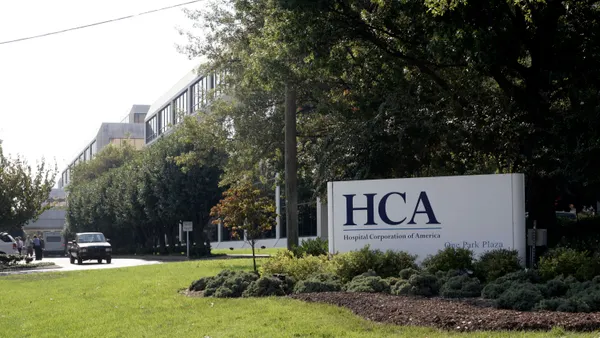Dive Brief:
- Mayo Clinic is expanding its collaboration with artificial intelligence-backed clinical documentation company Abridge, the partners said Tuesday.
- Under the agreement with Mayo, the documentation assistant will first be available to about 2,000 clinicians who serve around a million patients. The health system will continue a phased deployment over the next year to remaining eligible providers, Amy Williams, executive dean of practice at Mayo, said in a statement to Healthcare Dive.
- Mayo and Abridge — along with electronic health record vendor Epic — have already been working together to develop an AI documentation product for nurses announced last summer.
Dive Insight:
Founded in 2018, Abridge has rolled out its documentation assistant to a number of health systems over the past year. The product records conversations between providers and patients, and then drafts a clinical note for review.
Last month, the company said it would deploy the product at Michigan-based Corewell Health in one of Abridge’s larger health system partnerships, according to CEO Shiv Rao. Abridge has also recently notched deals with Duke Health, Johns Hopkins Medicine and Kaiser Permanente.
Mayo is also an AI developer in its own right, with more than 200 projects in different stages, according to the provider’s website. The health system performed a “rigorous clinical note quality assessment” to ensure the documentation tool would meet its standards, according to a press release.
Using AI for clinical documentation has become a competitive space for technology companies, with firms like Microsoft-owned Nuance Communications, Suki, Amazon, Veradigm and Oracle offering their own tools.
Proponents argue notetaking is ripe for AI innovation, given the long-documented challenges by providers who say the hours they spend on administrative work can impede patient care.
AI generally has become one of the most exciting technologies for the healthcare sector, spurring increased venture capital investment in healthcare startups last year, according to Silicon Valley Bank. Abridge raised $150 million in a Series C funding round nearly a year ago.
Still, deploying AI products at health systems can be challenging, as inaccurate or biased tools could pose risks to patient care and safety. Last week, the HHS laid out a strategic plan for overseeing the rollout of AI in the healthcare sector.














